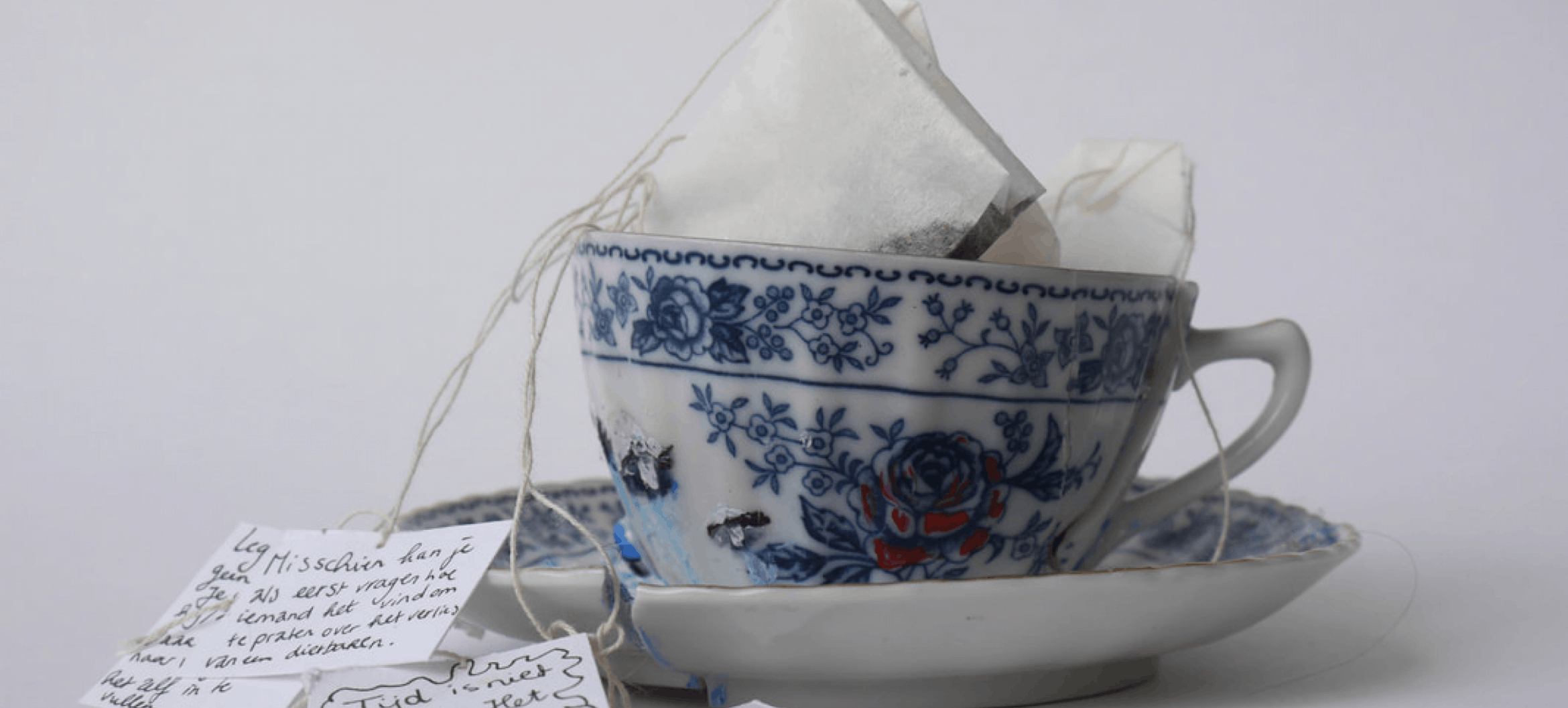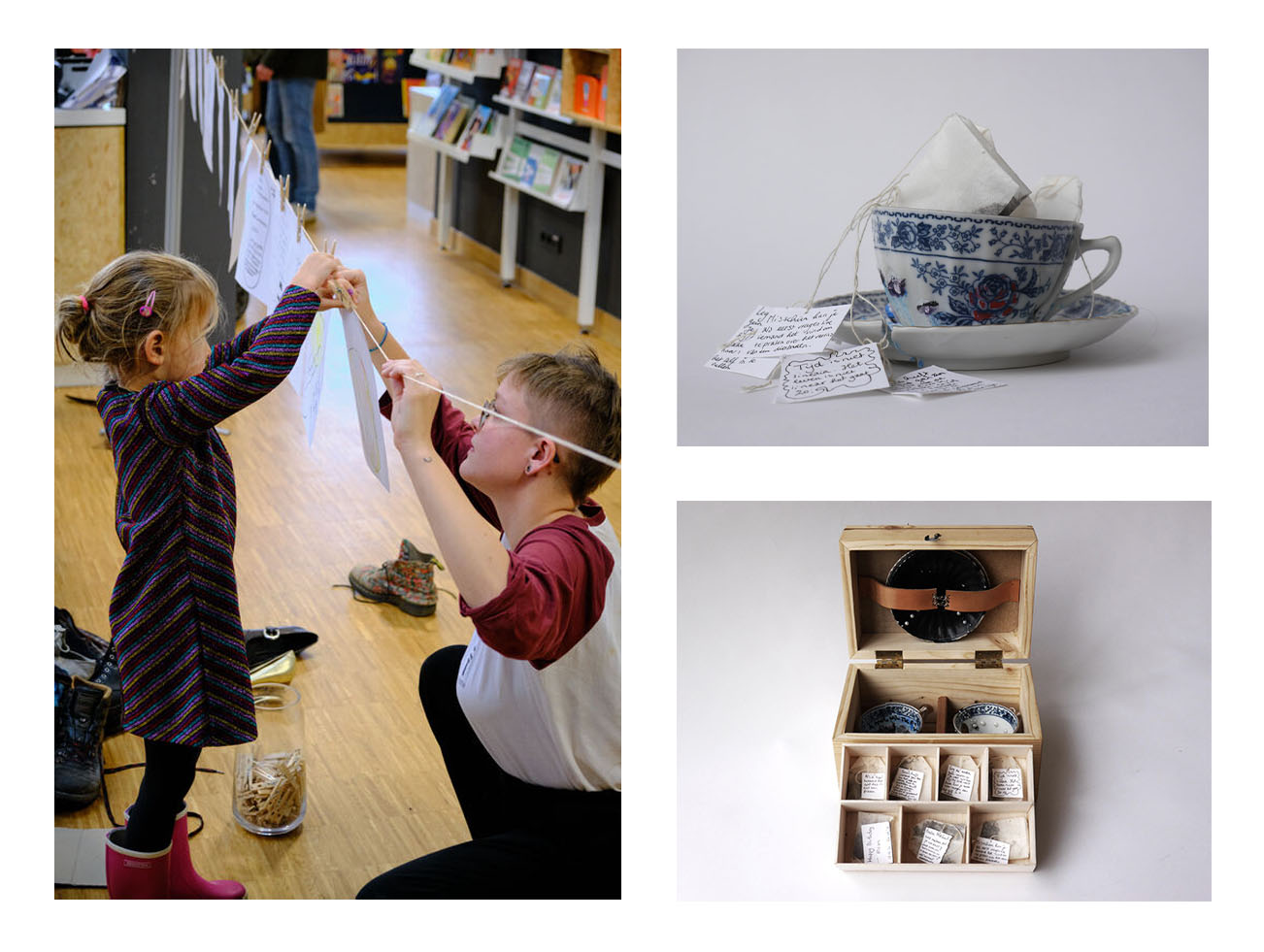A tea party with broken teacups
"After graduating as a theater maker and teacher I pretty much knew how to interpret and tell a story. Contentious political stories with a small and with a capital ‘P’ where important to me and I wanted to tell these with non-professional actors as much as possible to give voice to people who had actually lived the reality of these narratives."

"However, during my time at iMAE I was encouraged and questioned about the values of such work and asked to move beyond the art of storytelling which made me question how the artistry of making these stories and showing them, affected the lives of people who lived through them.
I started to question ‘what has been learned from it’, which includes the processes and the outcomes of a work and I learned that art and politics have long standing relationships but that education was a more deeply pollical act and as an artisteducator I had to be aware of this – for the good and the bad.
Art has been used for propaganda, as a tool for protest and for conflict resolution. Art can form the images, quotes and feelings that get stuck at the back of our mind and hold us back from moving forward. As an iMAE student I was encouraged to become more critically aware and to start talking to people I did not agree with and listening to stories from multiple perspectives to deepen my understandings. This helped me realise how many complex layers there are in conflicts. Conflicts in ourselves, the identities we consider ‘ours’ or those that are put upon us, the cities and environments we live in, the politics we encounter and so on…
I learned to ask uncomfortable questions but also to live with uncomfortable questions about myself – and in the meantime to do this in a caring and meaningful way. During my graduation project ‘a tea party with broken teacups’, I have had conversations with friends who have lost one of their parents and started to use artistic materials and theater as a tool to work with situations of conflict and loss. Through arts based research I developed methods of support that could help people who grieve, without moving in to the field of arts therapies by keeping a clear focus on the intention: learning."

"After iMAE I started working as a teacher and program coordinator at homes for displaced persons; I am doing theater programs in several neighborhood centers; I have started a ‘queer theatre group’; work as a teacher in higher education, teaching about the methods and practices of socially engaged arts; and am still continuing my research on the topic of death and loss and its relations to my practice as artisteducator."
And I realise, I can do these things because I learned to work with people, rather than to make work about them.
"Sometimes this means using art as a tool to start conversations about hard and emotional topics, sometimes this means using art to create a sense of joy and play. But coming to a conclusion I realise that artisteducators have the ability to reframe the ‘truths’ we live and create in our everyday lives."


